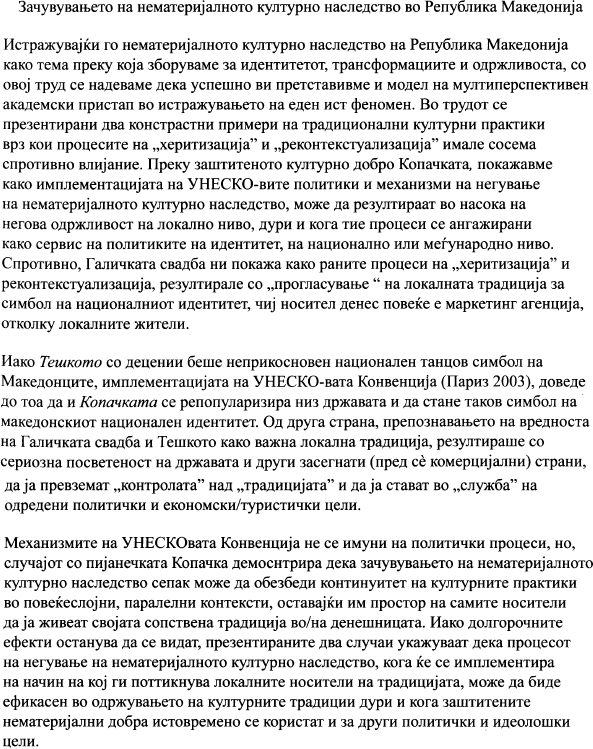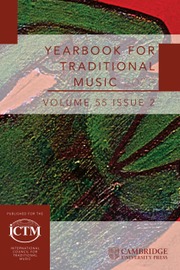Article contents
Safeguarding Intangible Cultural Heritage in the Republic of Macedonia
Published online by Cambridge University Press: 06 December 2018
Abstract
In this article we examine the way local, national, and regional politics affect the policies and practices of “intangible cultural heritage” (ICH)—a notion derived from the 2003 UNESCO Convention for the Safeguarding of Intangible Cultural Heritage—in two detailed case studies from the Republic of Macedonia. While our conclusions are particular to our case studies, we hope that researchers in other national settings will find them useful for describing and analysing their own situations. We begin with a discussion of heritagization and recontextualization, which are inherent in ICH safeguarding processes. Next, we provide background on the external contestation of a distinct Macedonian ethnic and national identity, and the ways that UNESCO ICH safeguarding processes have been perceived and applied in Macedonia. Against that backdrop, we then describe and analyse two contrasting cases of ICH—the social dance “Kopackata” and the Galicnik Wedding—both of which illustrate how the cultural heritage concept itself can sometimes be used for national, commercial, and political ends.

- Type
- Articles
- Information
- Copyright
- Copyright © 2016 By The International Council for Traditional Music
References
References Cited
- 2
- Cited by




